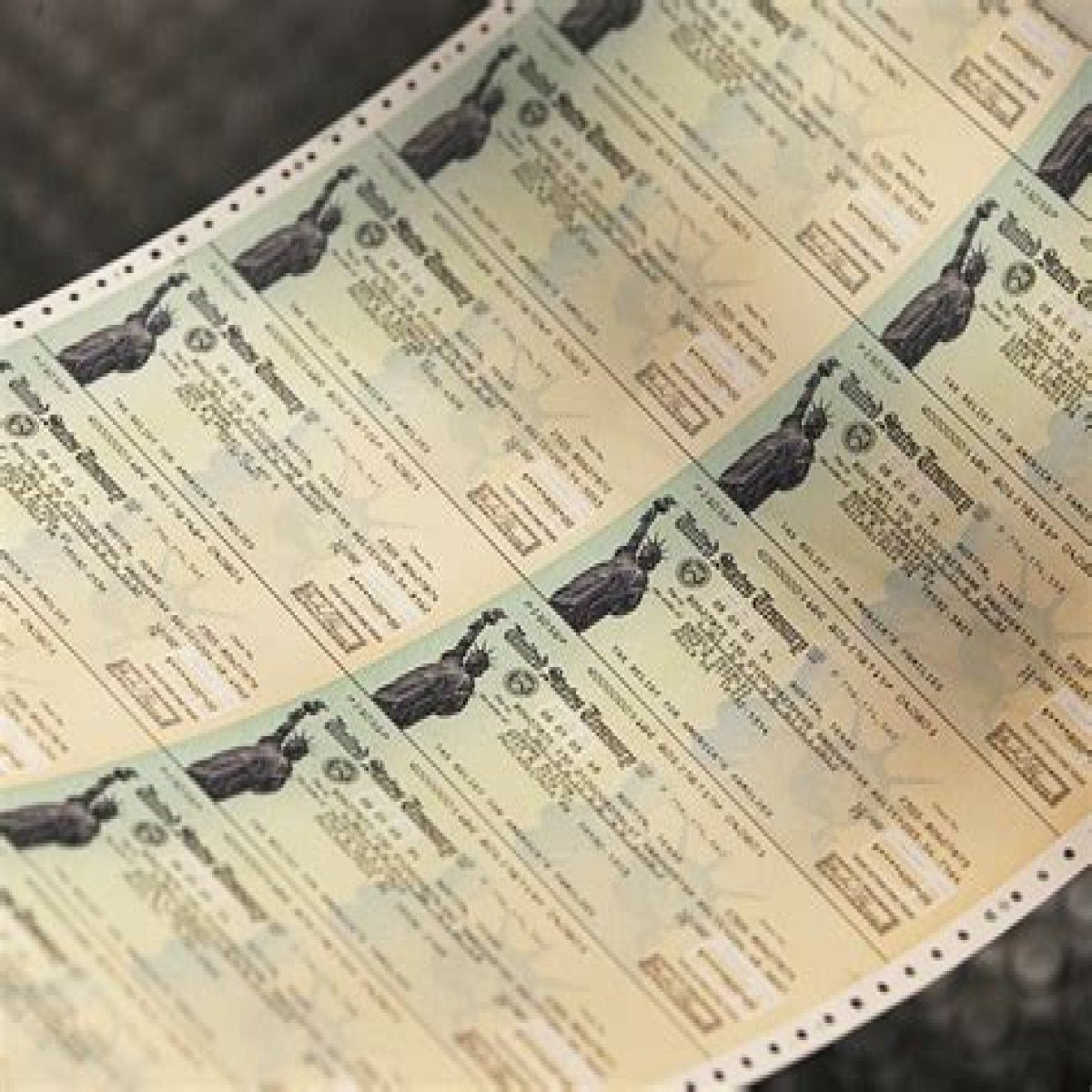MILLIONS of Americans are set to receive an injection of cash this week as the IRS gears up to start sending out payments from the expanded child tax credit beginning tomorrow.
The IRS said it is expected to deliver monthly payments to some 39 million families with children ages 17 or younger, with the first checks set to be sent out on July 15.
The scheme, passed as part of President Joe Biden's $1.9 trillion America Rescue Plan, will send expanded credits to eligible families each month until the end of the year.
For the next six months, qualifying parents will receive $300 a month per child under age 6 and $250 a month per child between ages 6 and 17.
The money will have a significant impact on millions of families, particularly low-income households, experts say, as they grapple with the end of Covid-era unemployment benefits and protections that helped people keep a roof over their heads.
Additionally, research conducted by the Center on Budget and Policy Priorities at Columbia University found that more than four million children could be lifted out of poverty because of the expanded aid.
Here's everything you need to know about the payments:
Who qualifies?
The full enhanced child tax credits will be sent to heads of households earning $112,500 or less and joint filers making up to $150,000 per year.
After those benchmarks, the credit amount begins to phase out.
For many families, the credit then plateaus at $2,000 per child and starts to phase out for single parents earning more than $200,000 or for married couples with incomes above $400,000.
Read our stimulus checks live blog for the latest updates on Covid-19 relief...
Parents who aren't citizens can collect payments for their citizen children so long as they have individual taxpayer-identification numbers (ITN) and their children have Social Security numbers.
The IRS has launched a tool on its website to help families determine their eligibility.
The expanded credit is only in place for the remainder of 2021, but Biden has called to extend it through 2025. Other Democrats want it put in place indefinitely.
How are the payments distributed?
The IRS will distribute half of the credit as an advance on 2021 taxes in six monthly installments worth $250 to $300 per child.
The remainder will be received in a lump sum when parents file their 2021 tax returns in April.
Families were given the opportunity to opt-out of monthly payments and instead receive the cash next year in one single payment, though the opt-out deadline has now passed.
Parents who have provided the IRS with their bank account information in order to receive a tax refund will receive the payment via direct deposit.
Otherwise, parents can expect to receive the money through the mail as a paper check.
Families also can check the Child Tax Credit Update Portal to see how the money will arrive.
They can also sign up for a direct deposit or change their bank account information through the portal.
Will I get the cash on July 15?
The IRS will start sending the money out on Thursday, however, it's likely to take around two or three business days for the deposits to appear in your account.
"I wouldn't expect the money on July 15 — that's when the IRS will release the funds," Mark Steber, Jackson Hewitt's chief tax information officer, told CBS.
"There will be some lag time for the money to hit your bank account."
The process is likely to be similar to the three rounds of stimulus payments.
In the latest round, the IRS began issuing checks to 90 million people on May 17. But many didn't receive the funds in the accounts for several days, causing alarm for some.
The reason for the delay is partly due to the time required by banks to process and settle the funds, at which point the money can then be delivered to individual accounts.
When will the next checks arrive?
The IRS will deliver the monthly payments on the 15th of each month through December 2021.
Be sure to note the below dates in your diary so you never forget when the cash is incoming:
- July 15
- Aug. 13
- Sept. 15
- Oct. 15
- Nov. 15
- Dec. 15
Will I have to pay taxes on the credit?
As the child tax credits are not considered income, you will not need to pay taxes on the payments on your 2021 filing.
However, recipients should keep track of how much they receive from the IRS as they will need to reconcile those payments on their 1040s in 2022.
That's because half of the CTC will be claimed on your tax return, so you'll need to know how much you received to accurately report that information, CBS reports.
Most read in Money
Misreporting CTC payments on your 1040 could cause a delay in your tax refund in 2022.
Read More on The US Sun
Some taxpayers fell victim to delays this year because they failed to accurately report their stimulus payments on their 1040s - triggering an automatic review by IRS employees.
The IRS currently has a backlog of about 35 million tax returns, with many held up because of errors.
